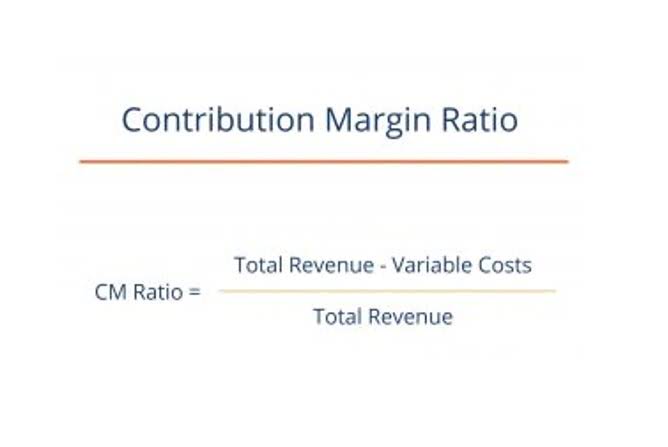
SaaS accounting refers to the financial management, tax, and bookkeeping specifically tailored for software as a service businesses. Unlike traditional accounting, SaaS accounting deals with the complexities of subscription models, recurring revenue, and performance obligations. This specialized approach is crucial for accurately recognizing revenue and managing financial statements using SaaS accounting software. Complicated subscription models, complex billing cycles, and deferred revenue management can make it difficult to apply traditional accounting rules effectively. SaaS companies must navigate these complexities while ensuring compliance with accounting standards like GAAP.

How SaaS Companies Choose Accounting Software
You’ll eventually use the information housed in this system to file your taxes. Best for service-based startups or small teams needing intuitive invoicing and time-tracking tools. The opposite end of the spectrum is the “don’t do it yourself at all” option, outsourcing everything to an accountant.
Broad integration support
It looks at the value of a contract and anticipated income ahead of payment completion. Bookings are an essential metric for SaaS businesses to understand sales efforts and potential revenue growth. Revenue tracking is the most notable difference in SaaS accounting because of the subscription model of SaaS businesses.
Stabilized cash flow
Do they charge by the hour, or do they offer a monthly or annual package? Get a full breakdown of costs, including any additional fees for things like tax filings or extra reports. You need a clear picture of your financials, but you want to see the accounting services for startups information that matters to you. Whatever it is, you should be able to customize your dashboard so you are not digging through irrelevant data. Escalon Services is serving over 5,000 clients across more than 40 countries, including notable brands like Allbirds, Indiegogo, and Crunchbase. Their team will help you establish robust financial systems and offer strategic guidance to support fundraising and expansion goals.

Common Mistakes To Avoid When Choosing An Accounting And Bookkeeping Company For Startups
SaaS accounting is essential for managing the unique financial dynamics of subscription-based models. Unlike traditional businesses, SaaS companies rely on recurring payments, which necessitate specialized accounting systems to handle the complexities of cash flow, upgrades, downgrades, and more. Revenue recognition for SaaS businesses involves adhering to specific guidelines like ASC 606 and IFRS 15, which address the complexities of recurring subscription models. This specialized form of accounting ensures that revenue streams are Restaurant Cash Flow Management accurately tracked, financial reporting is precise, and compliance with standards like GAAP is maintained.
A PlumbBooks employee links these to a pre-built Looker Studio dashboard, which auto-refreshes on a schedule to meet each client’s requirements. Not only is it time-intensive, but it’s also prone to issues like inconsistent formats across tables from different team members and human error. All of this combined creates a risk of inaccuracies in data collection and calculations. Consequently, teams face delays in generating up-to-date financial insights, which hinders their ability to make swift, data-driven decisions. Additionally, it leads to increased operational costs due to inefficient resource allocation.
- The key to choosing the best SaaS accounting software in 2025 lies in understanding your unique needs.
- Moreover, by accruing revenue from upgrades, add-ons, and one-time fees, you gain a more precise perspective on long-term customer commitment and, in turn, business growth.
- Determining when and how to recognize revenue can be challenging, especially when dealing with multi-year contracts and different billing cycles.
- Cash accounting counts revenue as you receive cash and subtracts costs from that number once cash leaves your bank account.
- You might assume the accountant knows exactly what you need, but unless you clearly communicate your goals and expectations, things can get missed or misunderstood.
- Accurate financial reporting is essential to the success of your business.
Sales Tax Compliance
- If you don’t know what you need, you could end up wasting money on services that don’t actually help you.
- You also don’t pay us for benefits, downtime or vacations, so our cost tends to be much more efficient than hiring an internal team member.
- Others, like QuickBooks and Xero, can quickly scale up with you but have inexpensive entry-level tiers to get you started.
- Check out our blog for more details on each of these accounting software programs to help you figure out which one will work best for your business.
- When you’re considering a new tool to add to the stack, you want to prioritize trusted integrations.
- Accounting software does more than just track your expenses; it also automates critical financial tasks, reducing human error and freeing you up to focus on scaling your business.
Accrual accounting is where revenue is recorded not upon receiving cash but once it’s earned, and expenses are recorded when incurred, not when paid. This means you may report a profit in one period while cash flow occurs in another. As with any business, when choosing accounting software for a SaaS startup, it’s essential to focus on critical features that align with the specific needs of your business. unearned revenue Those two factors are the future of many industries – and practices like SaaS accounting can benefit from such as well. Automation can help streamline processes and reduce errors in financial reporting.

Manage your income and expenses, explore revenue trends by customer, and go over other key business data. Track your income and expenses, analyze revenue by customer, and identify your most important customers with key metrics. Accrued (or unbilled) revenue is money earned but not billed or received. In other words, it represents the revenue recognized before issuing an invoice to the customer.
Leave a Reply